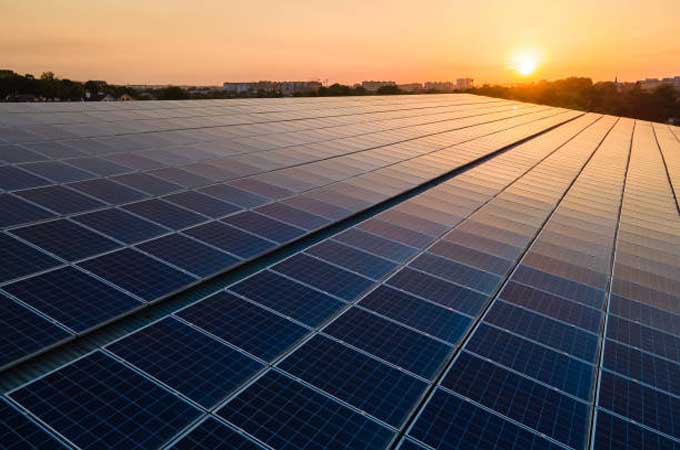 Image by Bilanol/ iStock Images
Image by Bilanol/ iStock Images
China's industry ministry issued draft rules tightening investment regulations for solar photovoltaic (PV) manufacturing projects as it looks to pare back overcapacity.
Projects will need to have a minimum capital ratio of 30 per cent under the new rules. Previously, that minimum applied to polysilicon manufacturing projects while the minimum for other PV projects was 20 per cent.
The ministry did not provide a definition of the ratio, which typically refers to the percentage of total investment shareholders invest with their own assets.
The regulations also lay out minimum efficiency levels for different types of solar panel technologies.
The goal is to limit further expansion of manufacturing capacity, pare back outdated capacity and accelerate sector consolidation, said Jessica Jin, principal research analyst for solar PV at S&P Global Commodity Insights.
"The policy direction is to control expansion pace through regulations on quality capacity," Infolink analyst Amy Fang said, pointing to the standards for efficiency as well as for energy consumption.
Including plans for new plants announced this year, China by some estimates has enough capacity to meet global demand until 2032. That has led prices to fall below cost level, in some cases, and hurt sector profitability.
The rule applies to both new construction and expansion projects.
The comment period for the draft rule will run until July 15, according to a notice on the Ministry of Industry and Information Technology's (MIIT) website.
MIIT said the aim is to strengthen management of the PV industry and accelerate upgrading and structural adjustments.
The draft rule also said that registered companies' annual expenses for research and development and process improvement should be at least 10 million yuan ($1.38 million), and no lower than 3 per cent of overall sales, in line with existing guidelines. -Reuters









































































